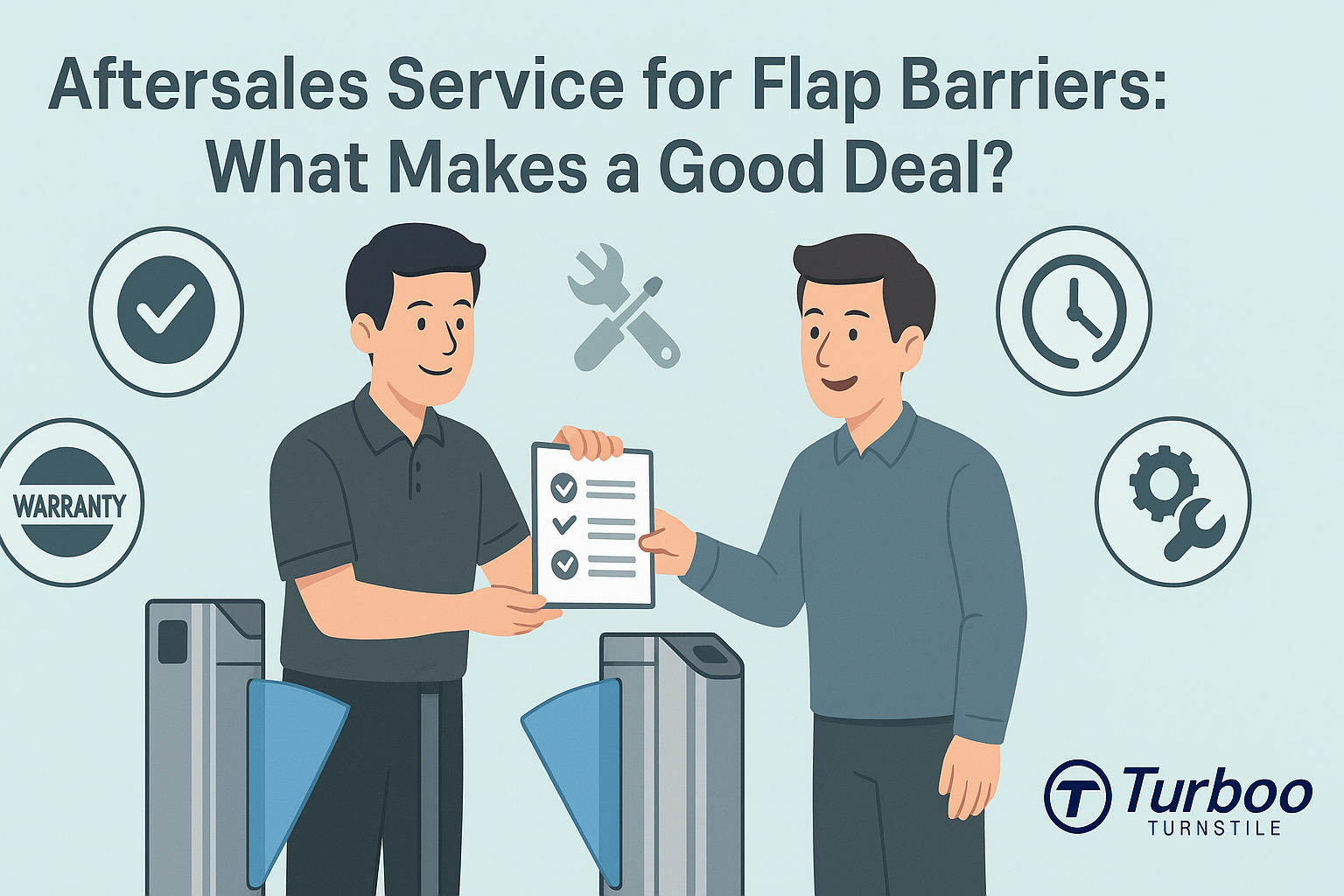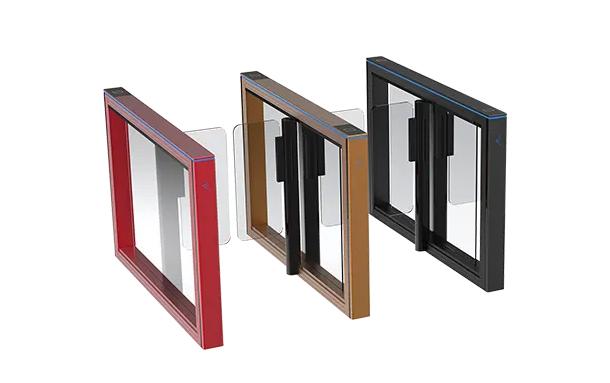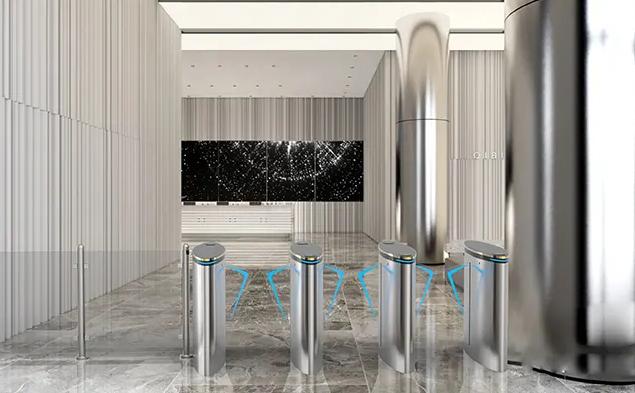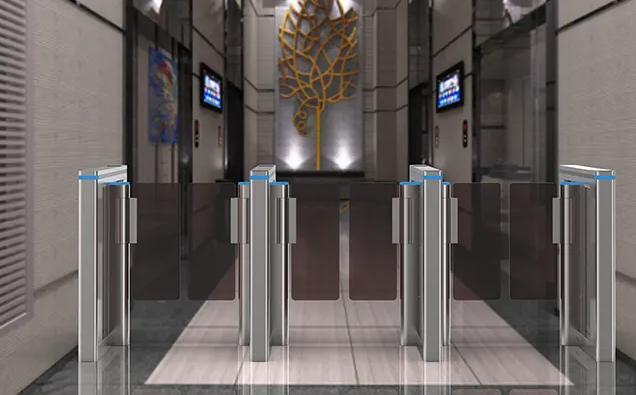Aftersales Service for Flap Barriers: What Makes a Good Deal?


Flap barriers are crucial components for controlling access in secure environments, from airports to office buildings. However, as any facility manager knows, flap barriers don’t always perform as expected. After installation, there can be a range of malfunctions—from misalignment to faulty sensors—leading to frustrated staff, halted operations, and unhappy visitors. When these barriers malfunction, it can cause significant disruptions to a business or public space’s day-to-day activities.
What’s even more frustrating is when the service team that was supposed to maintain the barriers is unavailable, slow to respond, or lacks the necessary expertise. Facility managers can be left in the lurch, trying to figure out how to handle the issue, all while still needing the flap barrier to function properly. This is why choosing the right flap barrier service provider from the outset is critical. A strong aftersales service can help you resolve issues quickly, get the system back online, and avoid future headaches.
In this article, we’ll explore the key elements that make a good flap barrier service, including vendor responsiveness, maintenance plans, troubleshooting support, spare parts availability, and warranty terms. We’ll also cover how to evaluate vendors, what to look for in service contracts, and the importance of industry best practices. By the end of this guide, you’ll be equipped with the knowledge you need to choose the best flap barrier aftersales service for your facility’s needs.
Why the Right Aftersales Service Matters
Investing in a flap barrier isn’t just about the upfront cost—it’s about the long-term value and functionality of the system. Without proper aftersales service, the equipment might break down prematurely, leading to unforeseen repairs, costs, and downtime. But with the right service provider, you can save money, time, and stress.
Excellent aftersales support doesn’t just help you fix problems when they arise. It can proactively prevent issues, extend the lifespan of your flap barriers, and enhance overall performance. For example, scheduled maintenance ensures that the barriers are always in optimal condition, reducing the likelihood of failure during crucial moments. With the right service provider, a minor issue can be fixed before it escalates into something larger, minimizing disruptions and protecting your investment.
Building Confidence through Service Agreements
Having a service agreement with a vendor for flap barriers can offer peace of mind. These agreements typically cover various service aspects, including routine maintenance, troubleshooting, and urgent repairs. With an agreement in place, facility managers can ensure that they are never left without support when they need it the most.
Strong service agreements often offer quick response times, prioritizing customers with active contracts. This is essential, especially in environments where time is of the essence. Such contracts also ensure that equipment issues are addressed before they affect operations significantly. Knowing that a dedicated service team is available 24/7 can greatly reduce stress and increase the reliability of your security infrastructure.
Key Elements of a Good Aftersales Service for Flap Barriers
One of the most important aspects of a good aftersales service for flap barriers is vendor responsiveness. When a problem arises, time is of the essence. A service provider that’s slow to respond or hard to reach can quickly exacerbate the issue, causing prolonged downtime. On the other hand, a vendor with prompt communication and quick service can keep your operations running smoothly with minimal interruption.
A reliable vendor should be easily accessible through various channels (phone, email, and chat support) and have a clear service level agreement (SLA) that guarantees fast response times. Additionally, 24/7 support is crucial for facilities that require constant access control. In emergencies, having a vendor that can mobilize quickly ensures the issue doesn’t linger and disrupt security operations.
Maintenance Plans
Regular maintenance is key to ensuring that flap barriers continue to function at their best. A well-structured maintenance plan is one of the most effective ways to avoid unexpected malfunctions and repairs. By scheduling periodic checks, your flap barriers can be fine-tuned to prevent wear and tear before it affects performance.
A good vendor will offer comprehensive maintenance plans that include scheduled inspections, cleaning, software updates, and minor repairs. These plans can often be tailored to fit the specific needs of your facility. The benefit of an ongoing maintenance agreement is that it helps extend the life of your barriers, reduces the likelihood of malfunction, and ultimately saves you money by identifying potential issues early on.
Link to Flap Barrier Maintenance
Troubleshooting Support
Flap barriers, like any mechanical system, are prone to issues. Whether it’s a sensor failure, alignment issue, or software glitch, troubleshooting is an essential part of any good aftersales service. A vendor with solid troubleshooting support can diagnose the issue quickly, often providing a remote diagnosis or sending an expert to the site if necessary.
Good troubleshooting services can save time and money by addressing problems early. Vendors that offer online resources, detailed troubleshooting guides, and expert phone support can be incredibly useful. For more complex issues, a quick on-site service visit ensures that the problem is resolved promptly, minimizing downtime.
Link to Flap Barrier Troubleshooting
Availability of Spare Parts
Spare parts availability is another critical aspect of aftersales service. When a flap barrier needs a part replaced—whether it’s a motor, sensor, or actuator—it’s important that replacement parts are readily available. A good service provider will stock the necessary parts, ensuring quick repairs and minimal downtime.
Vendors who offer on-site spare parts storage or can ship replacement parts quickly provide a higher level of service. It’s also beneficial if the vendor offers quality OEM (original equipment manufacturer) parts to ensure the longevity and performance of your flap barriers.
Warranty Terms and Coverage
Warranty terms play a significant role in protecting your investment. A comprehensive warranty should cover parts and labor, offering peace of mind in case of a failure or malfunction. It’s important to understand the specific terms of your warranty, such as coverage duration, the parts included, and any conditions that could void the warranty.
When reviewing warranty coverage, make sure to check for exclusions or limits, as these could affect the level of support you receive. The best service providers will offer clear, easy-to-understand warranty terms, ensuring that you’re covered for both minor and major issues.
Vendor Reputation and Experience
When selecting a vendor for flap barrier service, it’s crucial to consider their reputation and experience. Vendors with a long track record of providing quality aftersales service are more likely to have the necessary expertise and resources to handle your needs effectively. Look for reviews, testimonials, and case studies that demonstrate the vendor’s reliability in the field.
An experienced vendor will also be up-to-date with the latest technologies and best practices, ensuring that your flap barriers are serviced using the most efficient and modern techniques. Choosing a vendor with a solid reputation and proven track record reduces the risk of poor service and costly mistakes.
Clear Communication and Service Expectations
Establishing clear communication with your service provider is essential for smooth operations. A vendor that understands your needs and can communicate effectively will help you navigate any issues more efficiently. It’s also important to set clear expectations from the outset regarding response times, service levels, and maintenance schedules.
Having a detailed service agreement that outlines all these factors can prevent misunderstandings and help ensure that the vendor delivers the service you expect. Good communication also involves regular updates and transparency about the status of ongoing issues, so you always know what to expect.
Understanding Service Standards
Industry standards play a crucial role in evaluating the quality of aftersales service. A reputable vendor will adhere to established best practices and service standards that ensure the quality and reliability of their work. Make sure that the vendor meets or exceeds these standards, which could include certifications from professional organizations, such as SIA, or compliance with local or international regulations.
How to Protect Your Investment with a Strong Service Agreement
When entering into an agreement with a vendor for flap barrier aftersales service, it’s crucial to negotiate terms that protect your investment and offer long-term value. A service contract is not a one-size-fits-all arrangement, and it’s essential to tailor the terms to your specific needs. For example, consider the frequency of maintenance, the response times for emergency service, and the types of repairs covered by the contract.
A well-negotiated service contract should provide you with clear guarantees on service response times. For critical facilities, consider negotiating for faster response times and priority service, ensuring that the flap barrier downtime is minimized. Additionally, review the terms related to labor costs, spare parts, and any hidden fees that may be added to the contract.
It’s also helpful to include performance metrics in your service agreement. These metrics could include repair turnaround times, equipment uptime, and the quality of troubleshooting support. These KPIs (Key Performance Indicators) will help both parties ensure that expectations are met.
The Value of Regular Inspections and Maintenance
Routine inspections and maintenance are a cornerstone of good aftersales service. Many issues with flap barriers can be caught early during routine maintenance, which prevents costly repairs down the line. Regular checks also ensure that the barriers are operating efficiently, contributing to longer product lifespan and fewer failures.
Maintenance should be more than just a quick check-up; it needs to be a thorough inspection that covers all aspects of the flap barrier system, from mechanical components to software updates. By incorporating these inspections into your service contract, you can ensure your facility is always operating with optimal security and access control.
A good vendor will include scheduled maintenance visits in the service agreement, ideally tailored to your facility’s usage and specific needs. Frequent inspections help identify wear and tear, mechanical stress, or software updates that could improve functionality, reducing the risk of sudden breakdowns.
How a Proactive Approach to Maintenance Saves Money
By investing in proactive maintenance, you can avoid the need for expensive emergency repairs or the replacement of major components. Preventative maintenance is much less costly than reacting to a malfunction after it happens. It also helps avoid the costly business disruptions that can occur if the flap barriers stop functioning unexpectedly.
Many vendors offer maintenance packages that include regular check-ups and early-stage issue identification. By detecting small problems before they escalate, you’re likely to save significant amounts in repairs and replacement parts. This approach is a long-term cost-saving strategy that keeps your systems running efficiently without major interruptions.
Best Practices for Aftersales Support in the Flap Barrier Industry
The flap barrier industry, like any other, has set standards for aftersales support. By understanding and following these best practices, both vendors and customers can ensure a smooth experience. For example, vendors should always ensure transparency in service offerings, clearly explaining what is included in the service contract, and maintaining a high level of customer service with clear communication channels.
Best practices also include having qualified and experienced technicians on hand who are familiar with the latest technologies and solutions in the flap barrier industry. Furthermore, the use of OEM parts in repairs and replacements is a key industry standard that guarantees the longevity and performance of the barrier systems. Vendors who follow these standards will likely deliver superior service that can be trusted for long-term reliability.
A good vendor will also adhere to industry-specific regulations and standards, ensuring that all services are carried out according to relevant legal and safety guidelines. For example, they should comply with local accessibility and security regulations to guarantee that your flap barriers meet the highest industry standards.
Link to Aftersales Support Best Practices
How Strong Aftersales Support Improves Customer Satisfaction
Aftersales support is a critical factor in customer satisfaction. When customers know that they can rely on their service provider for fast response times, efficient troubleshooting, and regular maintenance, they are more likely to have a positive experience. This leads to greater trust in the service provider and encourages long-term business relationships.
Providing excellent aftersales support can also improve the overall customer experience by ensuring that any issues are addressed promptly and efficiently. A responsive, knowledgeable service team reduces stress for the customer, allowing them to focus on their core responsibilities rather than dealing with technical problems.
Strong aftersales support can help differentiate one vendor from another, leading to higher customer retention and increased brand loyalty. The value of a trusted relationship with a vendor extends beyond individual transactions, as customers are more likely to turn to the same vendor for future projects and recommend them to others.
Conclusion
Selecting the right flap barrier aftersales service is essential to the long-term success of your security infrastructure. By ensuring that you have a vendor who is responsive, provides solid maintenance plans, and offers comprehensive troubleshooting support, you can protect your investment and avoid costly downtime. In addition, understanding the value of a solid service agreement, being aware of industry best practices, and negotiating the best contract terms will ensure that you receive the most value from your flap barriers over time.
By following the guidelines in this article, facility managers, procurement officers, and security teams can make an informed decision, ensuring their flap barriers continue to function optimally and provide reliable access control for years to come.












